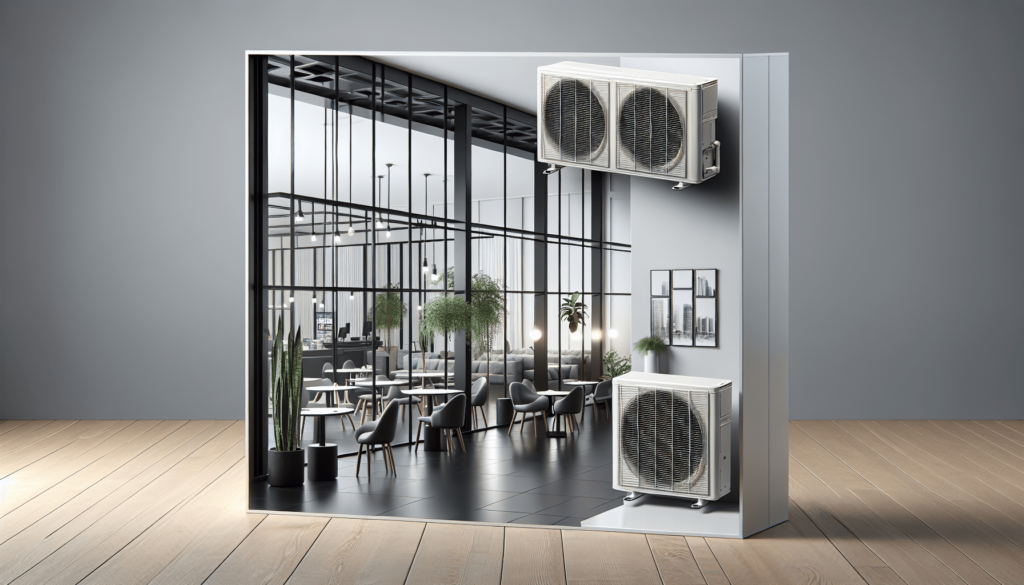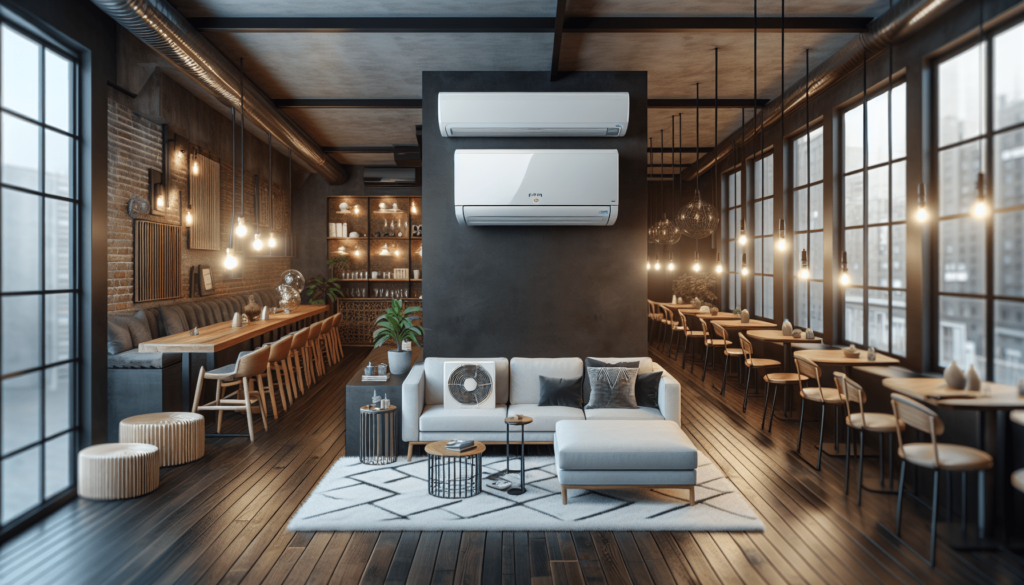Welcome to a world of efficient heating and cooling solutions for your commercial space with mini split heat pumps. In this article, we will explore the various considerations and benefits of using mini split heat pumps in commercial settings. From energy savings to customizable zone controls, these systems offer a practical and cost-effective way to maintain a comfortable environment for your employees and customers. Join us as we delve into the world of mini split heat pumps and discover how they can transform the way you heat and cool your commercial space.
Mini Split Heat Pumps For Commercial Spaces: Considerations And Benefits
Are you looking for an efficient and cost-effective way to heat and cool your commercial space? Consider using a mini split heat pump system! In this article, we will discuss the considerations and benefits of using mini split heat pumps in commercial spaces.

What Are Mini Split Heat Pumps?
Mini split heat pumps are heating and cooling systems that allow you to control the temperature of individual rooms or zones in your commercial space. Unlike traditional HVAC systems that rely on ductwork to distribute air, mini split heat pumps use individual units mounted on the walls or ceilings of each room. This allows for more precise temperature control and can help you save money on energy bills.
Mini split heat pumps consist of an outdoor compressor unit and one or more indoor air-handling units. The two units are connected by a conduit that houses the refrigerant lines, power cables, and condensate drain.
Tip: If you have multiple rooms in your commercial space that require different temperatures, mini split heat pumps are a great option as they allow for zoning, which means you can heat or cool specific areas as needed.
Considerations Before Installing Mini Split Heat Pumps
Before you decide to install mini split heat pumps in your commercial space, there are a few considerations to keep in mind.
Tip: Make sure to assess the size of your commercial space and the number of rooms that need heating and cooling. This will help determine the number of indoor units needed for your mini split heat pump system.
Energy Efficiency: Mini split heat pumps are known for their energy efficiency, but it’s important to choose a system with a high SEER (Seasonal Energy Efficiency Ratio) rating, which indicates the system’s efficiency during cooling mode.
Cost: While mini split heat pumps can be more expensive upfront compared to traditional HVAC systems, they can save you money in the long run due to their energy efficiency and zoning capabilities.
Installation: Mini split heat pumps require professional installation, so make sure to hire a qualified HVAC contractor who has experience with these systems.
Maintenance: Regular maintenance is key to keeping your mini split heat pumps running smoothly. Make sure to clean or replace the air filters, check for any leaks in the refrigerant lines, and schedule annual tune-ups with a professional.
Benefits of Using Mini Split Heat Pumps in Commercial Spaces
There are several benefits to using mini split heat pumps in commercial spaces.
Cost Savings: Mini split heat pumps are more energy efficient than traditional HVAC systems, which can lead to significant cost savings on your energy bills.
Zoning Capabilities: With mini split heat pumps, you can create different zones in your commercial space and heat or cool them individually, saving energy and ensuring optimal comfort for everyone in the building.
Easy Installation: Mini split heat pumps are easier to install compared to traditional HVAC systems, as they do not require ductwork. This can result in a quicker installation process and less disruption to your business operations.
Improved Indoor Air Quality: Mini split heat pumps come with advanced filtration systems that can help improve indoor air quality by removing dust, allergens, and other particles from the air.
Flexibility: Mini split heat pumps offer flexibility in terms of placement, as the indoor units can be mounted on the walls, ceilings, or floor. This allows you to maximize space and ensure that the units are aesthetically pleasing.
Comparing Mini Split Heat Pumps to Traditional HVAC Systems
To help you better understand the benefits of mini split heat pumps, let’s compare them to traditional HVAC systems in commercial spaces.
| Aspect | Mini Split Heat Pumps | Traditional HVAC Systems |
|---|---|---|
| Energy Efficiency | High | Lower |
| Zoning Capabilities | Yes | No |
| Installation | Easier | More complex |
| Maintenance | Easier | More labor-intensive |
| Indoor Air Quality | Improved | Standard |
| Cost | Higher upfront cost | Lower upfront cost |
Tip: When deciding between mini split heat pumps and traditional HVAC systems, consider your specific needs, budget, and long-term energy savings goals.

Conclusion
In conclusion, mini split heat pumps are an excellent option for heating and cooling commercial spaces. They offer energy efficiency, zoning capabilities, easy installation, improved indoor air quality, and flexibility in terms of placement. By considering the size of your space, energy efficiency ratings, installation requirements, and maintenance needs, you can make an informed decision about whether mini split heat pumps are right for your commercial space.
If you’re interested in learning more about mini split heat pumps or are ready to install a system in your commercial space, contact a qualified HVAC contractor to get started. Stay comfortable and save money with a mini split heat pump system today!

